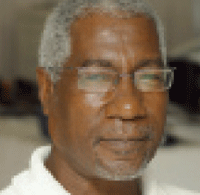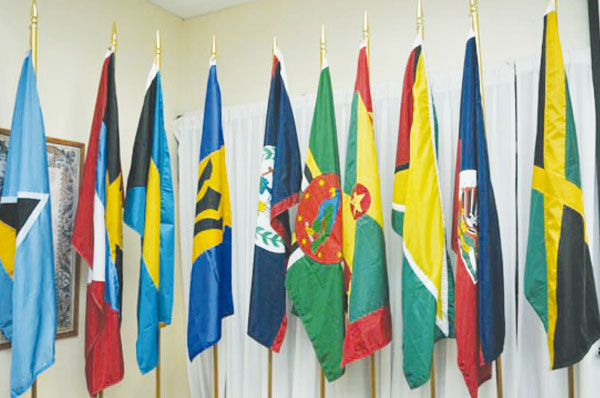
SAINT LUCIA finds itself this weekend slapdash in the middle of an unfolding situation that’s already tearing CARICOM (and possibly, the OECS) apart, even as it unfolds.
The region is being separated over Venezuela and CARICOM states are deeper divided than ever over ties with Caracas, which has for 19 years built stronger ties with the wider and entire Caribbean, but is now a prime target for externally-backed regime change.
Almost all CARICOM member states also belong to the PetroCaribe and the ALBA groupings and all have benefited in various ways from their membership. All six OECS member states also belong to both entities and recently reaffirmed their support for the regional integration objectives carved out in their aims and objective.
Venezuela is a founding member of the Organization of American States (OAS) and of late, especially under the current Secretary General, it’s also been the target of a powerful minority within the OAS bent on using the hemispheric organization as launching pad for external intervention in Venezuela’s internal affairs.
From April 3, the powerful minority in the OAS has been trying hard, though unsuccessfully, to get support for efforts to give life to its outdated ‘Democratic Charter’ to engineer OAS support for the violent opposition to the Nicolas Maduro administration.
Every effort to garner full OAS support for externally generated regime change in Caracas has so far failed.
The anti-Venezuela lobby had been unable to get the majority support needed to legalize OAS-backed intervention in Venezuela, as more than half of the 34 member states do not support intervention.
They didn’t get enough votes on April 3 to activate the ‘charter’ and again failed on April 19 to get enough support for an OAS statement blaming the Venezuela government for the opposition violence and calling for premature general elections.
But the diplomatic lobbying has continued within the OAS, resulting in deepening division within the wider body between those who support a forced removal of the elected Maduro government and those who don’t.
Now that division has reached CARICOM and the OECS.
Under pressure from the powerful minority behind the anti-Venezuela actions within the OAS, representatives of most vulnerable Caribbean and Latin American states have been forced to take individual hurried stances on Venezuela that have resulted in a wider and deeper split between the Caribbean member states than between the Latin Americans.
The OAS vote in favour of the May 2 meeting in El Salvador to discuss Venezuela’s future was 19 for, 10 against, 1 abstention and 1 absent. This was a seismic shift in balance of forces.
Caracas has read the tea leaves well and recognizing that its powerful minority opponents within the OAS have finally been able to summon a majority vote on a Venezuela issue, has decided to exit the OAS instead of being expelled.
Cuba was expelled from the OAS back in 1961 in a similar way after the USA had failed to get enough Latin American states to support its military plans to invade Cuba and turn back the Cuban Revolution.
Back then, CARICOM did not exist and there were no English-speaking Caribbean member states of the OAS.
But when the Venezuelans take a look at how Caribbean countries voted on the OAS floor, they will have all reason to worry about how much they can rely on CARICOM and the OECS today and tomorrow.
CARICOM was split down the middle on the vote for the El Salvador meeting: Bahamas, Barbados, Guyana, Jamaica and Saint Lucia voted in favour of the meeting, while Antigua and Barbuda, Dominica, Haiti, Saint Kitts and Nevis, Saint Vincent and the Grenadines and Suriname voted against. Belize and Trinidad & Tobago abstained and Grenada was absent.
Venezuela’s President has since met collectively with leaders of the OECS; and currently as chair of the Association of Caribbean States (ACS), Maduro has also met with the ACS leaders. But he has not yet met the CARICOM leaders.
Guyana is the current Chair of CARICOM – and like Saint Lucia, was one of the five minority CARICOM states (out of a total of 14) that voted in favour of the El Salvador meeting.
This is significant as Guyana also has a century-old territorial dispute with Venezuela which can now also be conveniently revived to further widen and deepen the division now achieved over pursuit of externally generated regime change in Venezuela.
Saint Lucia is the only OECS member state to have seemingly broken ranks on Venezuela at a time when it is also being called on to sign the dotted line as a member of PetroCaribe and ALBA, organizations it has benefited from greatly without having formally joined.
Saint Lucia has an ambassador accredited to ALBA and the island was represented at the last ALBA meeting in Havana (a fortnight ago) where it was expected to join both PetroCaribe and ALBA. But there has been no announcement in that regard by the Ministry of Foreign Affairs.
Facing tight budgetary constraints, Saint Lucia may very well be quietly tap-dancing its way between Caracas and Washington — where the White House, the US Congress, the OAS, the IMF and World Bank are all based.
Now that Venezuela has opted to pull out of the OAS and given notice of its intention to activate the two-year ‘Vexit’ Clause, this will blunt any decision in San Salvador to expel it from the OAS.
But whatever happens at the May 2 meeting, it seems Saint Lucia and the rest of CARICOM will no longer be at one on ties with Venezuela as they were at this time one year ago.













